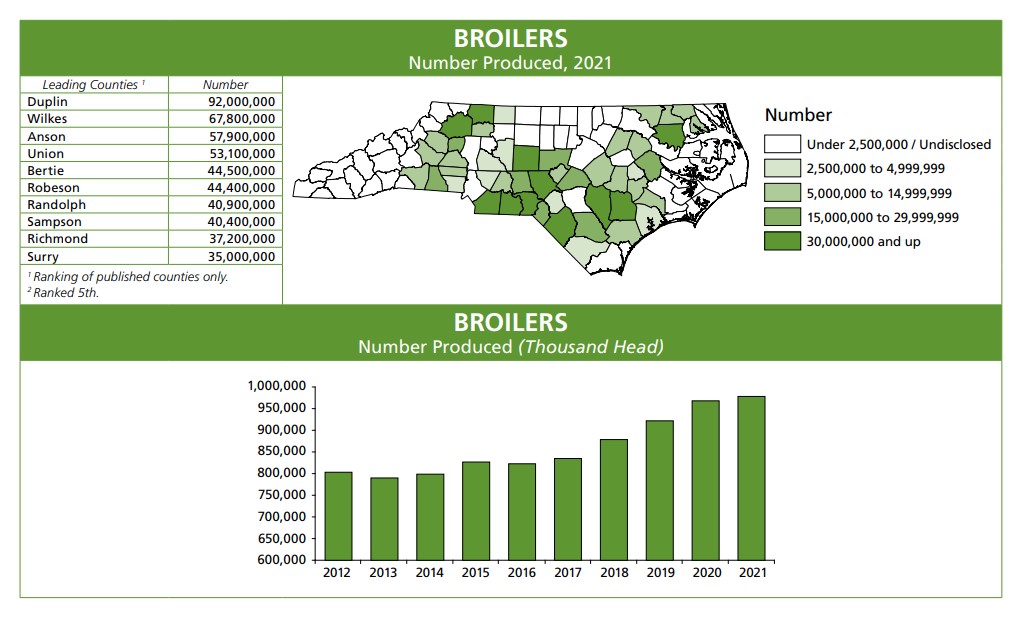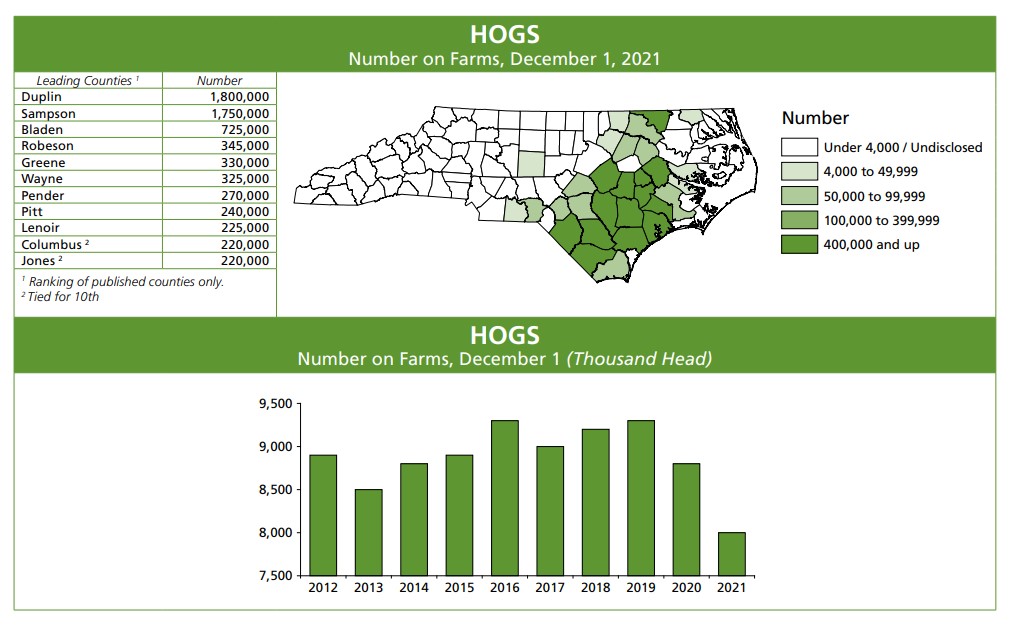Ag Allies: State of the Animal Protein Sector in North Carolina

In the last few weeks, the Wall Street Journal ran a feature on “Why Your Steak is Getting Pricier,” another that begins with the premise that “America Has Too Much Pork,” and yet another about the country’s largest meat supplier by sales, which contains the byline “Meat company plans to slash positions as it seeks to cut costs, streamline business.”
Conditions in the protein sector are so challenging at the moment that the Journal offered an op-ed piece suggesting that today’s market conditions vindicate the industry from the unfounded attacks hurled its way during COVID.
So where do things stand? And what does it mean for North Carolina? Dr. Blake Brown, Professor Emeritus at NC State University’s Department of Agricultural and Resource Economics, addressed these topics and updated attendees on the state of the protein sector in North Carolina during the third installment of the NC Chamber’s 2023 Ag Allies webinar series.
North Carolina has a diverse animal agriculture industry, but Dr. Brown focused his presentation on two specific animal protein sectors: broiler chickens and hogs. Livestock, dairy and poultry make up about 70% of farm cash receipts in North Carolina, most of which come from broilers (32.3%) and hogs (22%). Additionally, the poultry and hog farming industries employ roughly 56,500 people in North Carolina and have a total economic impact of $43.7 billion.
Dr. Brown provided an update on North Carolina’s two main protein sectors as outlined below:
Broiler Chickens:

Source: USDA 2022 North Carolina Agricultural Statistics Book
North Carolina typically ranks third or fourth in the nation for broiler chicken production. The industry saw significant expansion in the early 2000s, and we continue to see the industry grow across North Carolina. Broiler exports are up as chicken consumption continues to increase worldwide thanks chicken being one of the least expensive protein options for consumers.
The growth of the broiler chicken industry in our state is also a result of significant technological innovation, including genetic improvements, improved nutrition, and more sophisticated environments for housing chickens. For example, in 1925 it took almost five pounds of corn to produce one pound of chicken. As of 2010, only 1.75 pounds of corn was required and that number continues to decline.
Hogs:

Source: USDA 2022 North Carolina Agricultural Statistics Book
North Carolina typically ranks second or third in the nation for hog production. Unlike broiler chickens which are produced across the state, hog production takes place primarily in southeastern North Carolina. As the chart above indicates, hog production peaked around 2016 and 2019 but has started to decline, primarily due to changes in the volume of pork imported into China, the highest consumer of pork in the world. Mexico is now re-emerging as the largest importer of pork from the United States.
The hog industry has also benefited from significant technological innovations, many of which were developed here in North Carolina. Hogs are becoming more feed efficient, and despite declining numbers of overall breeding herd, sows are able to have more litters per year and more pigs per litter.
To close his presentation, Dr. Brown pointed to key issues the North Carolina agriculture and agribusiness industries will need to continue to pay close attention to going forward, including:
- Nuisance lawsuits
- Right to farm laws
- Urban growth
- Animal welfare
- Waste management
- Regulatory pressure
Dr. Brown also noted that the agriculture industry will need to be aware of the rising popularity of lab grown meat, which has now been cleared to sell in the United States. One of the largest lab grown meat manufacturers in the world is opening a production facility in Wilson, NC.
The NC Chamber continues to monitor these issues and many others impacting agriculture in North Carolina and is proud to advocate for policies that support these vital industries so that our state’s people, and communities throughout the world, can prosper. We thank Dr. Brown for providing this important update on the animal protein industry in the state. To hear more for Dr. Brown and to access the webinar recording, click here.
We welcome members of the agriculture and agribusiness communities to join Ag Allies, a coalition of businesses that work tirelessly to champion the needs our state’s top industry. Sign up here to be notified about our next webinar.